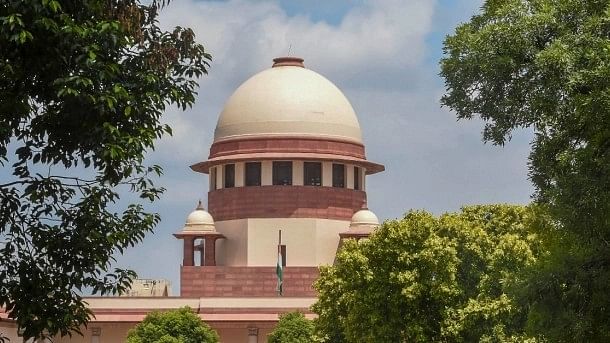
A view of the Supreme Court.
Credit: PTI File Photo
On February 15, a five-member bench of the Supreme Court, headed by the Chief Justice of India - DY Chandrachud - banned the use of Electoral Bonds as an unconstitutional instrument. It called for the money from the uncashed bonds to be returned to the investors. In doing so, it effectively struck down the amendments made to the Section 13A of the Income Tax Act, Section 182(3) of the Companies Act and Section 29C of the Representation of the People Act, that allowed donations to be made and accepted in complete anonymity. Predictably, this ruling left donor taxpayers worried if their donations made during the current financial year would sustain the 100% tax exemption they were eligible for.
A bit of history
In 2003, to promote transparency, the then NDA Government brought certain amendments to the Income Tax Act to include a provision that donations made to the political parties could be accounted as expenditure and avail tax exemption to the donor. Similarly, the political parties are under obligation to disclose those donations to the Election Commission and the Income-tax authorities in a prescribed form to avail of tax-free benefits.
The UPA Government, as part of its efforts, has introduced the ‘Electoral Trusts’ concept to allow donors to park their money which in turn distribute the same to various political parties. However, where transparency and disclosures are concerned, the above two attempts made little progress. Political funding has remained largely anonymous or pseudonymous.
Entry of electoral bonds
In 2018, the current NDA Government introduced the ‘Electoral Bonds Scheme’ by assuring the donor’s anonymity at all stages – from purchase to redemption. Electoral bonds could now be purchased by an Indian citizen or entities incorporated in India, foreign entities through its Indian subsidiaries. An individual could buy them singly or jointly with others. Only those registered political parties with not less than one per cent of votes gathered in the last general election or state assembly election were eligible to receive the electoral bonds. They were like promissory notes, interest-free banking instruments that could be purchased for any value in multiples of Rs. 1,000, Rs. 10,000, Rs. 1 lakh, Rs. 10 lakh, and Rs. 1 crore by complying with mandatory KYC norms.
Between March 2018 and January this year, 30 tranches of electoral bonds have been floated. Typically, these bonds are encashed within 15 days of their issuance.
The SC ruling
The Court has directed the State Bank of India (sole Electoral Bonds issuer bank) stop the issuance of bonds with immediate effect and share all the relevant details / bonds details issued so far, with the Election Commission by March 6. The Election Commission, in turn, is required to publish those details on its portal by March 13. Those political parties that are yet to encash have been directed to return the money.
The tax implications
The apex court’s ruling is prospective in nature rather than of retrospective. This means the electoral bonds related amendments were valid until the judgment pronounced day i.e. February 15. Going by the validity time-frame of these bonds, most (if not all) have already been encashed by the political parties. On these grounds, the taxpayers are entitled for tax-exemption on these investments, though for the last time. As per officials interacting with the media, individuals, firms, and other entities will still be able to claim the tax relief while filing their Income Tax Returns by July 31, 2024. A duty rests on the Finance Ministry to issue a relevant clarification well before the commencement of the return filing season.
(The writer is Founder & CEO, Shree Tax Chambers)